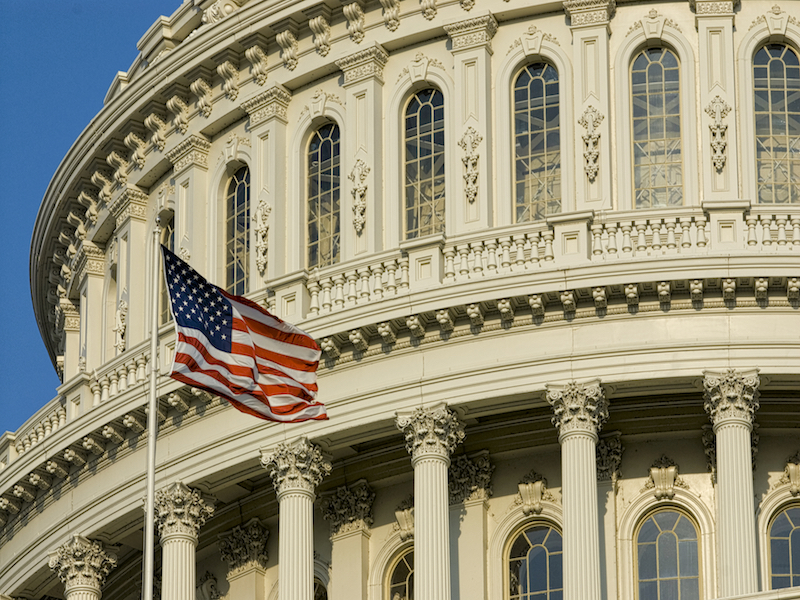Business
All About Government Business

The data is admittedly incomplete and riddled with gaps or guesses. Still, all indications are that we, as a planet, are leaving behind an era of infrequent defaults.
The buck stops here, folks
The government is, hey, the government. It's the final court of appeals, the last stop of human authority.
What do you do, then, when it hits financial trouble like anybody else running off the rails of their budget? In the worst-case scenario, you panic.
And if there are enough people like you, then the whole market panics.
Sovereign debt is that which governments of all countries owe to their creditors. That sovereignty means foreign investors are sending their cash to an entirely free area where they have no control.
They have only the government's piece of paper promising repay. Is it any wonder if they become a little jittery?
Making it onto the bum debtor blacklist
The Blacklist used to mean that one can invade a place for not paying what it owed. Since that era ended, here's a roundup of a few prominent examples.
- Greece
- Ireland
- Portugal
- Numerous South American countries in the '70s/'80s
These, at least, didn't face collectors at the point of a bayonet. It's a vicious cycle.
It used to be that to get into real trouble with your sovereign debt; you had to overpay for war or something of that ilk. Nowadays, two methods bring down sovereign borrowers.
Those two are currency and banking trouble. Currency, while more common as a cause, is not nearly as impossible to untangle as bank failures.
Here's why. Banks and governments have, for better or worse, become inextricably linked. Ironically, this was meant to lessen the chances of a systemic collapse.
But even as they reinforce one another, banks and countries spread their weaknesses into one another.
Significant amounts of private deposits gain insurance in developed countries by the state. Thus, if your friendly local savings place goes under, it's as good as debt on the national balance sheet.
“Could we talk about how I'm insolvent at a better time?”
Most inconveniently, stresses on sovereign debt rarely come up during boom years of tax revenue. It's kind of like how your electric bill never goes up right after you win the lottery.
As an aside, economists use an odd turn of phrase in these sorts of discussions. They often mention “stressed budgets” or the like. Even your money thinks you're doomed!
The rabbit hole only goes deeper. The worse the banks get, the more the government steps in to save the day, increasing its commitments.
And if the government starts to go under financially, the many bonds owned by the major corporations will be damaged. The wealthy foreigners did not owe all the money on the bonds, but domestically they withheld most.
The authorities have to raise the rate of interest to keep anybody from buying their debt. It becomes more and more impossible ever to repay.
The sun will come out someday
But starry-eyed optimism persists when often it should not. The devising of packages for new loans in countless cases. Soon they'll have bought enough time to reorganize the economy into something stable.
Only, this rarely works. Hope springs eternal, but it doesn't blow away fifty years of bad habits in six months.
Some analysts think negotiating a restructured debt, acknowledging one's inability to pay, is better in the long run. People learn lessons.
[ms_divider style=”normal” align=”left” width=”100%” margin_top=”30″ margin_bottom=”30″ border_size=”5″ border_color=”#f2f2f2″ icon=”” class=”” id=””][/ms_divider]
[ms_featurebox style=”4″ title_font_size=”18″ title_color=”#2b2b2b” icon_circle=”no” icon_size=”46″ title=”Recommended Link” icon=”” alignment=”left” icon_animation_type=”” icon_color=”” icon_background_color=”” icon_border_color=”” icon_border_width=”0″ flip_icon=”none” spinning_icon=”no” icon_image=”” icon_image_width=”0″ icon_image_height=”” link_url=”https://offers.thecapitalist.com/p/warrenbuffet/index” link_target=”_blank” link_text=”Click Here To Find Out What It Said…” link_color=”#4885bf” content_color=”” content_box_background_color=”” class=”” id=””]Warren Buffett Just Told His Heirs What He Wants them To Do With His Fortune When He Dies. [/ms_featurebox]
[ms_divider style=”normal” align=”left” width=”100%” margin_top=”30″ margin_bottom=”30″ border_size=”5″ border_color=”#f2f2f2″ icon=”” class=”” id=””][/ms_divider]
Ouch! The lessons hurt
Here's a summary of all the fun you can have in a country facing a sovereign debt crisis. It goes without saying that most of these crises are from Greece, the archetypal example in this category.
There's the loss of essential services due to austerity meant to restore finances to order again. More taxes, less to get out of paying them.
Riots tend to show up. Either you're having tear gas shot your way, or dodging away from the rioters.
Sometimes you get to hit back through the ballot box. You back a candidate who promises to tell the creditors where to go. He or she says that they'll figure out how to pay for entitlements after they've restored them.
The world is criticizing your country's work ethic, rightly or wrongly. Meanwhile, one study suggests that your health and mental well-being are taking a measurable hit. Unemployment is the big culprit there; we in the US are all too familiar with that one.
Hold on…that's not on me
Now might be as good a time as any to say that it's usually not all the borrowing country's fault. Of course, they're still on the hook a little. No one made them take loans.
For years, economists looked for causes of instability in the country falling apart. Logical enough, right?
Certain experts have noticed that the trigger of a potential debt crisis is tied, more often than not, to a minor hiccup of fear in the wealthy countries around which world finance orbits. A small choice to reduce loans there causes a tsunami at the edge of the globe.
Better the devil you know
It doesn't look rosy.
The data is admittedly incomplete and riddled with gaps or guesses. Still, all indications are that we, as a planet, are leaving behind an era of infrequent defaults.
The point to finding out about this, though, is that maybe we can prepare to either avert or survive it when it comes to us. Same reason we watch all those monster movies, of course.















